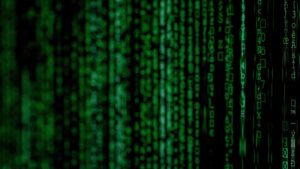Liberty and personal sovereignty allow individuals to express themselves freely and without limitations. Interaction with others may trigger a debate. Something most people wish to avoid. Alongside traditional information sharing, the internet enabled new dimensions of search, information provisioning, online networking, and the novel social media. Over time, the internet became a sophisticated database of information on various subjects. Data and privacy therewith require an advanced approach backed by legally sound protective frameworks.
Personal data and privacy relate to information that can identify a data subject directly or indirectly. A data subject for this definition is a natural person. Since legal persons have ample ways to take legal action against abuse and wrongdoers, data and privacy protection is tailored towards individuals. Legal persons itself are not protected under the European Data Protection Directive, the GDPR and other data protection acts due to the separation between the legal entity and its controlling natural persons.
The protection of individual data to ensure privacy is complex. Data subjects often voluntarily surrender specific data to a controller or processor in return for information, platform access, or else. External organizations may hold information on individual data subjects, making them vulnerable for breaches and other imperfections. As such, comprehensive and all embracing regulation must be in place to protect all parts of the data collection, storage, usage and eventually deletion processes.
From a marketing perspective, data mining and management allows for tailored commercial messages being delivered to a selective audience. Commercial mailing lists are often enriched via several databases, open source platforms and information available in the public domain. Therefore, the available information on a data subject is often more extensive as expected. This is another reason for data sovereignty and legal frameworks to protect the data and privacy of individuals.
Since data subjects are often uninformed about the exact scope of the available information about themselves, the GDPR provides them with an arsenal of possibilities to protect and erase their personal data from data collections held by enterprises in the EEA.
This website is tailored towards general data protection within the European Economic Area. This includes the member states of the European Union and several other countries. Legal entities, data processors and controllers must comply with the current regulation like the Data Retention Directive, the Data Protection Directive, the E-Privacy Directive, the European Convention on Human Rights, and the GDPR. All of which are discussed on this website and target both data subjects as well as the organizations that need to comply with the regulation.








